Jesus, You take over!
A prayer of the Servant of God, Fr. Dolindo Ruotolo
Podcast: Play in new window | Download (Duration: 6:57 — 4.8MB) | Embed
Subscribe: Apple Podcasts | Spotify | Amazon Music | Android | Pandora | iHeartRadio | JioSaavn | Podchaser | Gaana | Podcast Index | Email | TuneIn | Deezer | Anghami | RSS | More
Jesus to the soul:
Why are you upset and agitated? Leave your cares to Me and all will be fine. I tell you honestly, every act of true and blind reliance on Me results in what you desire and will resolve all your difficulties.
Abandonment in Me does not mean being frustrated, becoming anxious and desperate, offering Me your anxious prayer, that I may follow you and have your anxiety be a prayer. Abandonment means to shut the eyes of your soul in peace, moving your thoughts away from your troubles, and instead of thinking about your worries and pain, let Me take over your troubles. Simply say: Jesus, You take over. To be worried, restless, and to think of the consequences of an event is the opposite of reliance, it is really contrary to it.
It is like a child, who wants his mom to take care his needs, but in the way he wants: and with his whims and childish ideas he hampers her work. Shut your eyes and go with the flow of My grace. Do not ponder over your present moment and put away thoughts of your future as a temptation; rest in Me, believe in My goodness and I swear on My Love, that if you think like this: Jesus, You take over, I indeed will do it for you, I will comfort you, free you, and guide you. If I have to take you in a different direction from the one you are looking at, I will train you, I pick you up in my arms, and you will find yourself, like a baby sleeping in his mother’s arms, on the other shore. What gives you immense stress and hurts you, is your reasoning over it, your thoughts and the pains it gives you; it is wanting at all costs to take care by yourself of what is afflicting you.
How many things I can do, be it a material or a spiritual need, when the soul turns to Me, looks at Me and says to Me: Jesus, You take over, and close its eyes and rests in Me! You do not receive many graces because you insist on getting them by yourself; but instead you will receive numberless graces, when your prayer is in full reliance on Me. When you are in pain, and you pray that I may act, you want Me to act as you believe I should… you do not turn to Me; instead you want Me to submit to your ideas; you are like a sick person who does not ask the doctor for the cure but tells him what the cure is to be. Don’t be like this, but pray as I taught you in the Our Father: Hallowed be your name, which means, may You be glorified in this need of mine; Your kingdom come, which means, everything may work toward Your Kingdom in us and in the world; Your will be done on earth as it is in heaven, which means, You direct it as it seems best to You for the good of our eternal and temporal life.
When you truly tell me: Your will be done, which is the same then to say: Jesus, You take over, then I do intervene with all My omnipotence, and I will resolve every situation, even if there is no way out. For example, do you see your sickness becoming worse instead of improving? Don’t become anxious, close your eyes and tell Me with trust: Your will be done, Jesus, You take over. I repeat it, I do take care, I intervene like a doctor, and even do a miracle if it is necessary. Does a patient become worse? Don’t be frightened, close your eyes and say: Jesus, You take over. I tell you again: I will indeed do it for you, and there is no medicine more powerful than my loving intervention. I take over only when you close your eyes. You never sleep, you want to appraise everything, to think, to delve into everything; you choose to rely on human power, or, worse, on men, trusting their intervention. This is what hampers My words and My will. Oh how much I long for this reliance in order to assist you, and how much I grieve to see your anxiety. Satan does just this: he gives you anxiety to remove Me from you and throw you into human initiative.
Trust only in Me instead, rest in Me, rely on Me in everything. I do miracles in proportion to your complete reliance on Me, with no thought of yourself. I spread treasures of graces when you are in the most squalid poverty. If you have your own resources, even a few, or if you seek them, you are at the natural level, thus you follow the natural way of things, which often are dominated by Satan. Never a thinker or a philosopher has done any miracle, not even among the
Saints; only he who relies on God does divine work.
When you see that things become complicated, say with your eyes closed: Jesus, I abandon myself to You; Jesus, You take over, and stop worrying about it, because your mind is sharp and for you it is difficult to distinguish evil; but trust in Me, and let your mind wander away from your thoughts. Do this for all your needs; all of you, do this, and you shall see great things, endless and silent miracles. I swear it on My Love. I shall indeed take over, you can be sure of it. Pray always with this loving confidence and you shall have great peace and great fruits, even when I choose for you the grace of immolating yourself for reparation and the love that entails suffering. Do you believe it is impossible? Shut your eyes and say with all your soul: Jesus, You take over. Don’t be afraid, I indeed will take care of you, and you shall bless My Name, in humility. A thousand prayers do not equal only one act of abandonment; don’t ever forget it. There is no better novena than this: Oh Jesus I abandon myself to You, Jesus, You take over.
Imprimatur
+ Vincenzo Pelvi
Auxiliary Bishop of Naples,Italy
July 25, 2006
Translated from:
“Non voglio agitarmi,
Gesù Pensaci Tu”
This text with used with permission from Giovanna Ellis and the Ellis Editing Group
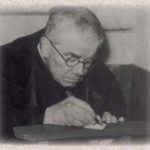 Visit here for more on Servant of God, Fr. Dolindo Ruotolo
Visit here for more on Servant of God, Fr. Dolindo Ruotolo


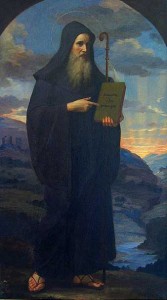 CHAPTER 7
CHAPTER 7
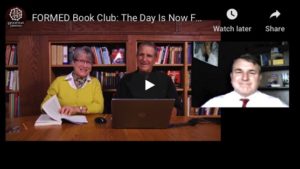 We begin our exploration of Robert Cardinal Sarah’s “The Day Is Now Far Spent”—a tour de force response to the present darkness in the Church. In this week’s reading, the cardinal pays a special tribute to such controversial churchmen as Henri de Lubac, Hans Urs von Balthasar, and Pope Emeritus Benedict XVI (all Ignatius Press authors). What he says may surprise you.
We begin our exploration of Robert Cardinal Sarah’s “The Day Is Now Far Spent”—a tour de force response to the present darkness in the Church. In this week’s reading, the cardinal pays a special tribute to such controversial churchmen as Henri de Lubac, Hans Urs von Balthasar, and Pope Emeritus Benedict XVI (all Ignatius Press authors). What he says may surprise you.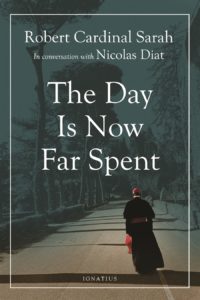

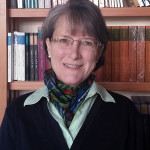

 Episode 5 – The Penitential Rite
Episode 5 – The Penitential Rite